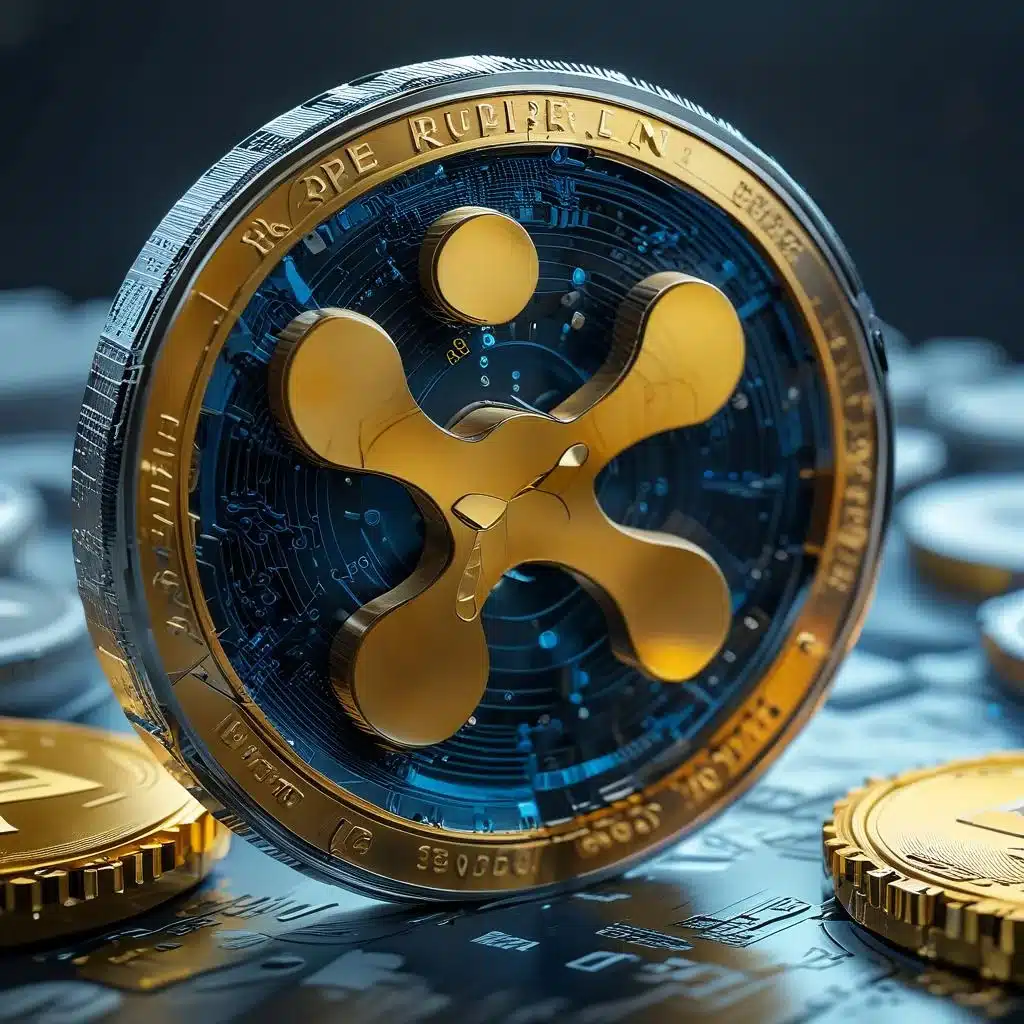Table of Contents
Ripple, initially conceived as a digital payment protocol, has evolved into a decentralized network with a primary focus on enabling seamless transactions through its native asset, XRP. Concurrently, smart contracts have emerged as a transformative force in the digital transaction landscape, functioning as self-executing agreements with coded terms on blockchain technology. The intersection of Ripple and smart contracts represents a convergence of two distinct technological realms, aiming to synergize and elevate the efficiency and functionality of financial transactions in the digital sphere.
This integration not only underscores Ripple’s adaptability but also highlights the potential for a harmonious coexistence between decentralized payment protocols and the automated, rule-based nature of smart contracts, further reshaping the landscape of digital finance. So, if you are looking for a website that connects you to investment education firms that can help you along your investment journey, consider visiting immediate-edge.software/.
The Genesis: Understanding Ripple’s Origin
Ripple as a Digital Payment Protocol
Ripple’s journey began as a digital payment protocol, designed to transcend the limitations of traditional financial systems. It aimed to provide a reliable and swift alternative for cross-border transactions.
Emergence of the XRP Ledger
The development of the XRP Ledger marked a significant milestone for Ripple. This decentralized ledger, underpinning the XRP cryptocurrency, introduced a novel approach to consensus mechanisms, fostering trust in a trustless environment.
Initial Limitations and Objectives
Despite early challenges, Ripple set its sights on refining its capabilities. Overcoming initial limitations, the platform aimed to redefine transactional efficiency, laying the groundwork for future integrations.
Ripple’s Evolutionary Phase
Ripple’s Early Integration with Smart Contracts
Ripple’s foray into smart contracts was gradual but deliberate. Early attempts at integration focused on enhancing the functionality of the protocol, creating a symbiotic relationship between Ripple and the evolving landscape of smart contracts.
Challenges and Adaptations
As with any technological evolution, challenges surfaced. Ripple adapted to these challenges, refining its protocols and mechanisms to align with the intricate nature of smart contracts.
Collaborations and Partnerships
Collaborations and strategic partnerships played a pivotal role in shaping Ripple’s trajectory. Engaging with like-minded entities and projects facilitated the exchange of ideas and accelerated the integration of smart contract capabilities.
Breaking Down Smart Contracts
Definition and Functionality
Smart contracts, encoded with predetermined rules, automate and enforce agreements, eliminating the need for intermediaries. This autonomous functionality streamlines processes, ensuring transparency and trust.
Use Cases in Various Industries
Smart contracts find application across diverse industries, from supply chain management to healthcare. Their ability to execute actions based on predefined conditions offers a versatile solution for numerous sectors.
Advantages and Limitations
While the advantages of smart contracts are evident, acknowledging their limitations is crucial. Security concerns, scalability issues, and regulatory considerations are factors that demand continuous attention and improvement.
Ripple’s Contribution to Smart Contract Development
XRP Ledger’s Capabilities
The XRP Ledger’s unique capabilities contribute to the integration of smart contracts. Its consensus algorithm and efficient transaction processing form a robust foundation for the execution of self-enforcing agreements.
Integrating Smart Contracts with Ripple
Ripple’s strategic approach to integrating smart contracts involves meticulous planning and development. The seamless incorporation of these contracts enhances the protocol’s functionality, creating new avenues for decentralized applications.
Use Cases and Real-world Applications
Real-world applications of Ripple-enabled smart contracts extend beyond traditional finance. From secure data sharing to decentralized identity management, the integration opens doors to innovative solutions with far-reaching implications.
Overcoming Challenges: Ripple’s Journey in Smart Contracts
Regulatory Landscape and Compliance
Navigating the complex regulatory landscape is an ongoing challenge. Ripple’s commitment to compliance ensures that its smart contract integrations align with legal frameworks, fostering a sustainable and secure ecosystem.
Security Concerns and Solutions
Addressing security concerns is paramount in the realm of smart contracts. Ripple employs advanced cryptographic techniques and continuous audits to fortify its systems, ensuring the integrity and confidentiality of transactions.
User Adoption and Market Perception
User adoption and market perception are critical factors influencing the success of Ripple’s smart contract initiatives. Education, outreach, and a user-friendly interface are pivotal in fostering widespread acceptance.
The Future Outlook
Technological Advancements in Ripple and Smart Contracts
Anticipating future developments, Ripple remains at the forefront of technological advancements. Continuous improvements in the XRP Ledger and smart contract capabilities position the platform as a trailblazer in the evolving landscape.
Potential Impact on Financial Ecosystem
The potential impact of Ripple’s integration with smart contracts extends beyond its current applications. As the ecosystem matures, the amalgamation of secure transactions and autonomous agreements could redefine the global financial landscape.
Predictions and Speculations
Predicting the trajectory of Ripple and smart contracts involves a careful analysis of market trends and technological advancements. While speculation is inherent in any forecast, the groundwork laid by Ripple suggests a future marked by innovation and adaptability.
Conclusion
In conclusion, Ripple’s journey in the realm of smart contracts epitomizes a steadfast commitment to adaptability and progress. Emerging from its roots as a digital payment protocol, Ripple seamlessly integrated with self-executing agreements, showcasing a pioneering approach to decentralized finance. The key takeaways encompass the intricate synergy forged between Ripple and smart contracts, the adept navigation of challenges, and the potential transformative impact on industries beyond the confines of finance. These insights not only underscore the platform’s resilience but also lay the foundation for ongoing growth and development. Looking forward, the convergence of Ripple and smart contracts heralds a future characterized by heightened efficiency, enhanced security, and greater transparency in digital transactions. As these technologies perpetually evolve, their symbiotic relationship promises a dynamic and innovative landscape, reshaping the landscape of decentralized and automated financial interactions.


